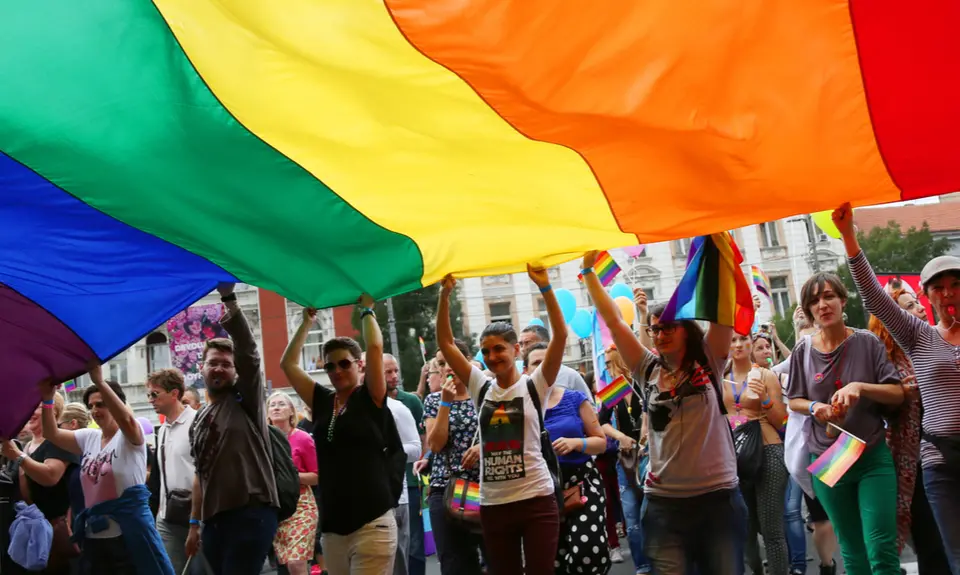Raising the federal minimum wage and ending unfair wage exclusions would be critical points of progress toward achieving gender equity. Not only would this uplift women-identified workers, but it would also have substantial benefits for LGBTQ+ people, who are more likely to be jobless, homeless, and living in poverty than the general population. Accordingly, the Raise the Wage Act is a critical priority for the LGBTQ+ community. People For the American Way is proud to stand with LGBTQ+ and allied organizations in support of this legislation. You can download our letter here.
Dear Member of Congress:
We, the undersigned organizations, write to express our strong support for the Raise the Wage Act (H.R. 582). As lesbian, gay, bisexual, transgender, and queer (LGBTQ) and allied organizations, we believe raising the minimum wage is a critical LGBTQ issue. Raising the federal minimum wage would benefit LGBTQ people by helping to reduce poverty and increase stability and economic security for LGBTQ people and their families.
Because of discrimination in employment, housing, education, and other areas, LGBTQ individuals are more likely to be jobless, homeless, and poor than the general population. Nearly 40 million workers, including LGBTQ people, would receive increased wages from the Act.1 In light of the disproportionate rates of poverty among LGBTQ people, passing this measure is a critical priority for our community.
The Raise the Wage Act would raise the federal minimum wage to $8.55 this year and increase it gradually over the next six years until it reaches $15 an hour in 2025.2 After 2025, the minimum wage would be adjusted annually to keep pace with growth in the typical worker’s wages.3 In addition, the Act would phase out the outdated subminimum wage for tipped workers, which has been stagnant at $2.13 since 1991.4 It would also sunset the ability for employers to pay a subminimum wage to workers with disabilities5 and phase out the subminimum wage for workers under the age of 20.6
An increase in the federal minimum wage would help the LGBTQ community, especially its most marginalized members. Incomes would rise above poverty level for nearly 30,000 people in same-sex relationships.7 Raising the minimum wage to $15 would decrease poverty by almost 50% among female same-sex couples and by 35% among male same-sex couples.8
Transgender people would be particularly impacted by this bill. Almost one-third of transgender people live in poverty, which is more than twice the rate of the U.S. general population.9
The bill would also have a profound impact on LGBTQ youth, who make up between 30% and 40% of homeless youth.10 47% of these LGBTQ homeless youth are persons of color.11 Since 55% of homeless LGBTQ youth were forced out by their parents or ran away because of their sexual orientation or gender identity, more than 50% of LGBTQ homeless youth remain homeless for longer periods of time than non-LGBTQ homeless youth.12 Raising the wage and phasing out the subminimum wage for workers under age 20 will help reduce homelessness among LGBTQ youth by helping them afford housing and achieve economic security independent of their families.
Additionally, the Act will have enormous impacts on LGBTQ people of color and LGBTQ women. 37% of the LGBTQ community identify as people of color.13 Under the Act, 40% of Black workers and 34% of Latino/a workers will benefit.14 Women account for nearly 56% of the workers benefiting from an increased minimum wage.15 Women also account for 2/3 of the country’s tipped workers, who are more than twice as likely to live in poverty than the rest of the workforce.16 LBTQ women are more likely than their non-LBTQ counterparts to receive public assistance, be unemployed, and be near or under the poverty level.17
Critics of the bill have argued against raising the federal minimum wage, proposing instead that minimum wages should be established by region.18 However, a minimum wage of $15 by 2025 is not unrealistic in any part of the U.S.19 In addition, rural communities have a strong incentive to support the Act because they are experiencing a housing affordability crisis in part due to flat incomes for low- and moderate-income workers in those communities.20
Additionally, the Act’s plan to phase in the $15 wage over six years allows for lower-wage states and regions to adjust to the new wage.21 Opponents of the bill also contend that small businesses do not benefit from raising the wage. However, 61% of American small business owners support raising the minimum wage.22
For these reasons, we support the Raise the Wage Act and urge you to consider the enormous benefits the bill will bring to the LGBTQ community. LGBTQ workers need jobs that allow them to have security and take care of themselves and their families.
